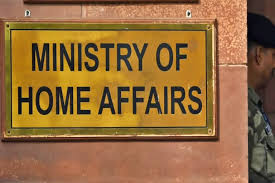Ministry amends FCRA norms: NGOs getting foreign funds can’t publish news content, says MHA

The Ministry of Home Affairs (MHA) has introduced new amendments to the Foreign Contribution (Regulation) Act (FCRA), 2010. Under these changes, NGOs receiving foreign funding can no longer publish or circulate news content in any format.
What the New Rule States
NGOs that receive foreign donations are now barred from publishing any news-related content. This includes print, digital, and electronic formats. To continue operations, these NGOs must get a certificate from the Registrar of Newspapers for India (RNI). The certificate must confirm that they do not engage in publishing or circulating news.
The rule makes it clear that the government wants to draw a sharp line between foreign-funded NGOs and media organizations.
Why the Government Made This Change
The MHA says the move helps protect national interests. It aims to stop foreign influence over domestic narratives. Officials also say the amendment aligns with global best practices.
The revised guidelines support India’s compliance with the Financial Action Task Force (FATF). This international body monitors money laundering and terrorism financing. The rule now requires NGOs to submit an undertaking. This confirms that they follow FATF’s good practice guidelines.
Other Key Changes in FCRA Rules
The MHA didn’t stop with media restrictions. Several new rules now affect how NGOs apply for or maintain FCRA registration:
- Mandatory Financial Records: NGOs must submit audit reports for the last three years. These reports should show how funds were used. If details are missing, a chartered accountant must certify the breakdown of spending.
- Limit on Administrative Expenses: NGOs must ensure that administrative costs do not exceed 20% of the total foreign funds received.
- Affidavits for Lapsed Registrations: If an NGO’s registration expired or was canceled, it must submit an affidavit. This document must explain how it used foreign funds after its certificate ended.
- Program Specificity: NGOs must operate in clearly defined areas. These include social, cultural, religious, educational, or economic development.
What This Means for Civil Society and Media
This amendment will affect many advocacy groups and think tanks. These organizations often publish studies, reports, and policy opinions. Many rely on international funds to run awareness campaigns and conduct research.
Critics believe the change could restrict voices that question or challenge the government. They argue that the line between news reporting and advocacy is often thin. The new rule could discourage organizations from publishing opinion pieces or informative articles.
However, government officials say the move isn’t an attack on free speech. They claim the goal is to stop the misuse of foreign funds for media manipulation.
Civil Society’s Response
Many NGOs have raised concerns. They say the rule lacks clarity. For example, some want to know if publishing a digital blog or newsletter counts as “news content.”
Legal experts also point out a problem. The rule doesn’t define what exactly qualifies as “news.” This could allow authorities to misuse their discretion and deny permissions without clear reasons.
Activists warn that India is shrinking the space for civil society. One group from Delhi said, “Each FCRA amendment adds more restrictions. Now, the government is policing content too.”
Background: The Evolution of FCRA
India passed the original FCRA law during the Emergency in 1976. In 2010, the UPA government brought an updated version. The current administration has added more restrictions since 2014.
In 2020, NGOs had to open special FCRA bank accounts with the State Bank of India. This change allowed the government to monitor fund flow more closely. Many well-known NGOs, including Amnesty International India, faced action under FCRA rules in recent years.
What Lies Ahead for NGOs
The amendment will force many NGOs to rethink their activities. Some may stop publishing reports and newsletters. Others may drop foreign funding to stay within the rules.
At the same time, NGOs may seek legal solutions. They want the government to explain what “news content” really means. Without clarity, even publishing a fact-based report could lead to penalties.
Going forward, the relationship between the government and civil society could grow more strained. A lack of clear communication may make matters worse.
Final Thoughts
The MHA’s new rule marks a turning point. It reshapes the way foreign-funded NGOs can operate in India. The government aims to guard national interests and promote transparency. But critics say it risks muzzling public discourse.
To avoid confusion, the government should issue clear definitions. It should also engage with NGOs before enforcing harsh penalties. A balance is needed—one that protects both national security and democratic freedom.






